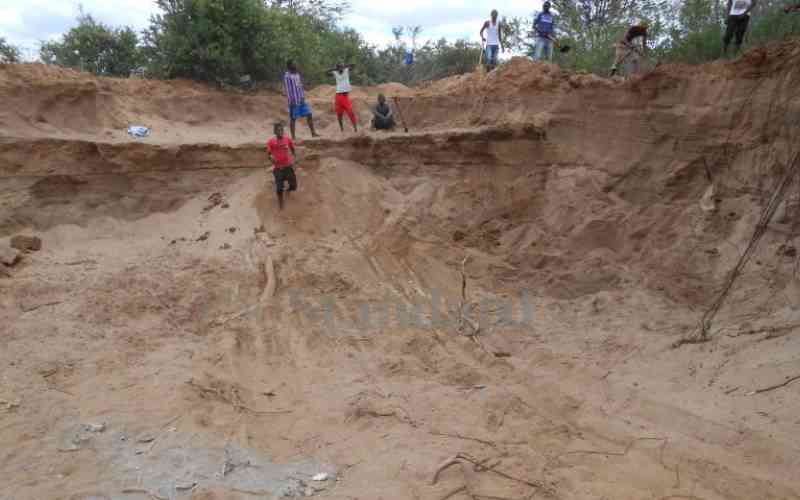×
The Standard e-Paper
Kenya’s Boldest Voice

Voi River is facing extinction due to prolonged drought and illegal human activities.
Nema County Officer Judith Kalo says the river has changed its ecological status due to human activities like unabated sand harvesting, brick-making and interference with the river's catchment in Taita Hills.